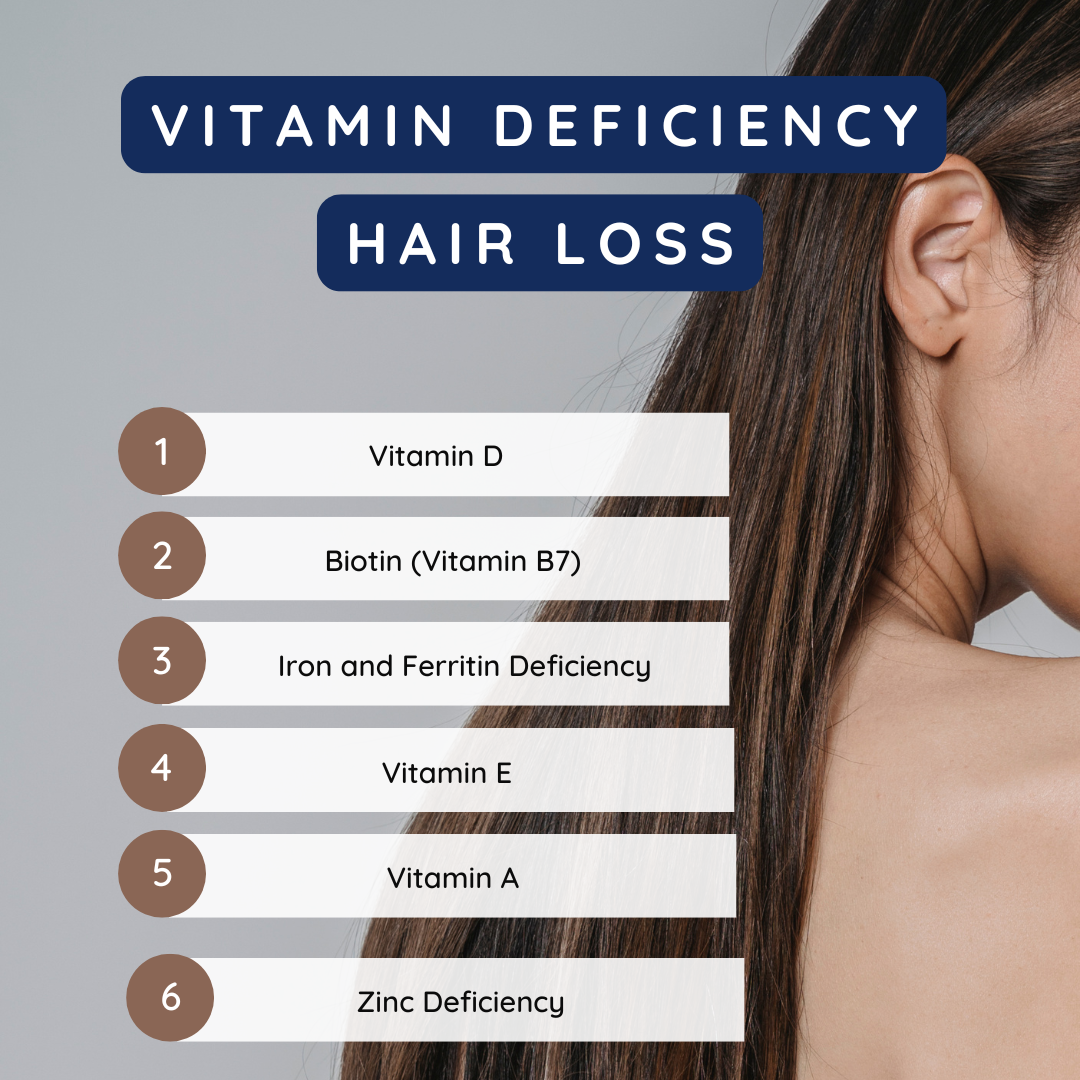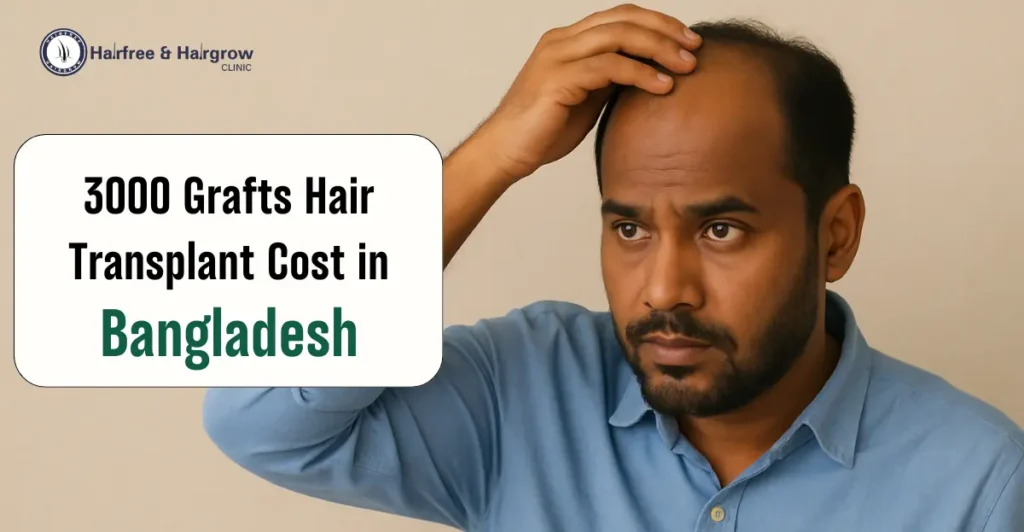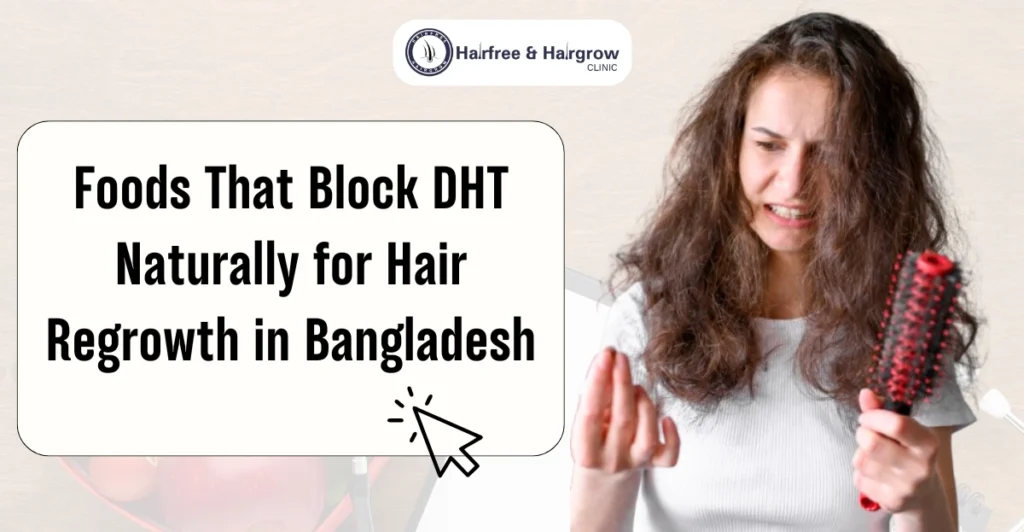Hair loss is a common concern for both men and women. While it’s normal to shed 50-100 hairs a day, excessive hair loss can be alarming.
One of the most overlooked causes of hair loss is vitamin deficiency. Your body needs certain vitamins to grow healthy hair, and a deficiency can lead to thinning, breakage, and even bald spots. So, which vitamin deficiency causes hair loss? Let’s explore in detail.
Table of Contents
The Role of Vitamins in Hair Health
Vitamins play a crucial role in maintaining the health of your hair. They help in the growth and repair of hair cells, improve scalp circulation, and prevent oxidative stress. Without the right nutrients, your hair can become weak, dull, and more prone to falling out.
While genetic, hormonal, and lifestyle factors can contribute to hair loss, vitamin deficiency hair loss is something that can be easily prevented or treated with the right approach.

Common Vitamin Deficiencies in Men and Women
Both men and women can suffer from hair loss due to a lack of essential vitamins. A well-balanced diet rich in vitamins is necessary to support hair growth and health.
Deficiencies in vitamins such as Vitamin D, Biotin (Vitamin B7), Iron, Vitamin E, and Vitamin A are often linked to hair thinning and loss.
Key Vitamin Deficiencies Leading to Hair Loss
1. Vitamin D Deficiency
Vitamin D plays a significant role in maintaining the health of your hair follicles. Research has shown that vitamin D deficiency and hair loss are closely related, as it can disrupt the hair’s growth cycle. Low levels of vitamin D can lead to a condition called alopecia areata, an autoimmune disorder that causes hair loss in patches.
To boost your vitamin D levels, ensure you spend time in the sunlight, eat dairy products, eggs, and mushrooms, or take vitamin D supplements.
2. Biotin (Vitamin B7) Deficiency
Biotin, also known as Vitamin B7, is one of the best vitamins for hair growth. It supports the production of keratin, the protein that makes up your hair, nails, and skin. Biotin deficiency hair loss can cause thinning, brittleness, and breakage. This vitamin is found in eggs, nuts, whole grains, and leafy greens. If you suspect a biotin deficiency, you can take supplements for hair growth that include biotin to promote stronger, thicker hair.
3. Iron and Ferritin Deficiency (Closely Related to Vitamin C)
Iron deficiency is a common cause of hair loss, especially in women. Iron helps red blood cells carry oxygen to your scalp and hair follicles, which is essential for hair growth. Low iron levels can lead to reduced hair growth and thinning. Ferritin, a type of stored iron, is also crucial for healthy hair.
Vitamin C plays a significant role in improving iron absorption. Eating foods rich in Vitamin C, such as citrus fruits and green vegetables, along with iron-rich foods like red meat, spinach, and legumes, can help prevent iron deficiency hair loss.
4. Vitamin E Deficiency
Vitamin E is a powerful antioxidant that protects your hair from oxidative stress caused by free radicals. A lack of Vitamin E can lead to hair damage and loss, as it helps in repairing hair follicles and improving scalp circulation. Nuts, seeds, and leafy greens are great sources of this vitamin.
5. Vitamin A Deficiency
Vitamin A is essential for the production of sebum, the natural oil that moisturizes your scalp and keeps your hair healthy. However, both a deficiency and an excess of Vitamin A can cause hair loss. Foods rich in Vitamin A include carrots, sweet potatoes, and spinach.
6. Zinc Deficiency
Zinc is crucial for tissue growth and repair, including your hair. A lack of zinc can lead to a dry, flaky scalp and hair thinning. Zinc also helps in maintaining the oil glands around your hair follicles. Foods like legumes, nuts, seeds, and whole grains are good sources of zinc.
Read Also –
How to Diagnose Vitamin Deficiency
If you’re experiencing vitamin deficiency hair loss, it’s essential to diagnose the deficiency accurately. Consult with a doctor for blood tests to check your levels of key vitamins like Vitamin D, iron, and B vitamins.
Understanding the root cause will help you take the right steps toward improving your hair health.
How to Address Vitamin Deficiency and Hair Loss
1. Supplements for Hair Growth
Taking the right supplements for hair growth can be an effective way to treat hair loss due to nutrient deficiencies. Look for supplements that contain biotin, vitamin D, zinc, and iron, but always consult your doctor before starting any new regimen.
2. Dietary Changes
A balanced diet is the key to preventing hair loss. Incorporate foods rich in the essential vitamins discussed above. Include plenty of green vegetables, fruits, lean proteins, and whole grains in your daily meals. For non-vegetarians, fish, eggs, and poultry are excellent options for boosting hair health.
3. Lifestyle Changes for Healthy Hair Growth
In addition to proper nutrition, make lifestyle changes such as reducing stress, getting adequate sleep, and staying hydrated. Regular exercise improves circulation, which helps in delivering nutrients to your hair follicles, promoting healthier hair growth.
How Proper Nutrition Can Help You Achieve Stronger Hair Growth!
A healthy, balanced diet loaded with vitamins and minerals can help you combat hair loss and improve overall hair health. Vitamins like D, Biotin, Iron, and Zinc not only prevent hair thinning but also promote stronger, shinier, and thicker hair.
Are you worried about hair loss right? Hair Free Hair Grow can help you regain your confidence with our expert hair restoration services. Contact us today at (+880) 1974223921 to schedule your consultation. Let us help you achieve stronger, healthier hair!
FAQ
Vitamin D deficiency and Biotin deficiency are among the most common causes of hair loss.
Vitamins such as Biotin (B7), Vitamin D, and Iron can help reduce hair loss.
Yes, if your hair loss is due to a vitamin deficiency, taking the right vitamins can help reverse it.
You can consult your doctor and get a blood test to check for any nutrient deficiencies that may be causing your hair loss.
Foods rich in vitamins such as dairy, eggs, nuts, green vegetables, fruits, and whole grains are excellent for preventing hair loss.

Written By
Medical Officer & Hair Transplant Surgeon
Dr. Nazmin Sultana Nipa is a distinguished hair transplant doctor in Bangladesh, known for her advanced skills in hair restoration. As a Medical Officer and Hair Transplant Surgeon, Dr. Nipa combines her extensive experience in the field with a focus on transparency and patient-centered care.
Disclaimer
We’ve made all possible efforts to ensure that the information provided here is accurate, up-to-date and complete, however, it should not be treated as a substitute for professional medical advice, diagnosis or treatment. See Detailed Disclaimers Here.



